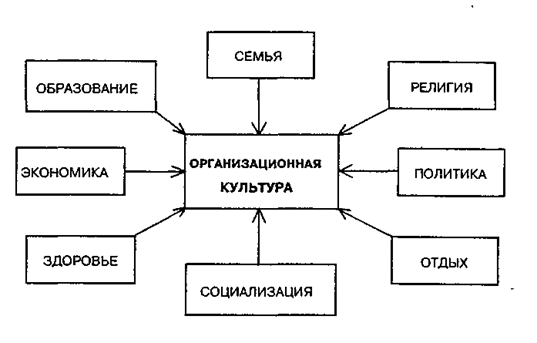home
 Management Management
 Management - Vikhanskiy OS Management - Vikhanskiy OS
|
Management - Vikhanskiy OS
4. National in organizational culture
It is known that the famous Japanese "circles of quality" have not been developed in Europe and the US. "Quality circles", as an element of organizational culture, really showed in Japan its high efficiency and contributed to an increase in the satisfaction of employees of Japanese firms. However, when trying to transfer this experience to American and Western European enterprises, what happened in Japan did not happen. This suggests that acquired in the national culture, it is maintained and developed, and if transferred to another "soil" it might lose this support and ultimately not take place.
For management practice, it is important to get from the theory the answer to two questions: what needs to be known about the national culture in order to predetermine its influence on the culture of the organization, and whether it is possible to "splice" the elements of different national cultures within one organization?
National culture in this context determines how people perform different roles in the life of a given society. Cultures are not bad or good, they are different. In the same way as it was applied to the organization, the culture can be viewed on three levels of interaction:
• national culture - world culture;
• culture of one group - culture of another group;
• culture of the individual - national culture.
The answer to the first question can be given consideration of a number of known approaches and models of studying the national in culture.
4.1. Systems approach
To understand the diversity of approaches to the analysis of culture helps a certain systematization of the numerous variables offered by specialists. Under the systematization in this case is understood the orderliness in the interrelations between the parts that make up a single whole. The following elements are distinguished [5].
The family system is a family relationship and the way through which people reproduce, educate and introduce their children into society. In the family, children for the first time develop behavioral patterns necessary for them to perform various roles in the organization in the future (for example, attitudes by status, age, sex, etc.)
The education system is how young and new members of society are provided with information, knowledge, skills and values. For example, in some cultures, more is taught through what one should not do, but in others - on the contrary.
The economic system is the way in which society produces and distributes goods and services. In this case, there are group, collective and individual approaches.
A political system is something that is primarily used to maintain order and the existing power. These may be attributes of a tribal or even tribal approach, or there may be elements of a developed democracy.
The religious system is an extra-material, spiritual means of providing meaning and motivation in people's actions. This system determines morality and prevailing values in society, which are guided by the organizations functioning in this society.
The system of socialization is a network and principles of social grouping, created by people in a given society.
The health system is the way in which culture prevents and cures diseases, and also takes care of the victims of disasters and incidents.
The rest system is a way of socializing people and using their free time. Some cultures pay considerable attention to sporting people, various kinds of outdoor activities are cultivated. In a number of cultures, emphasis is placed on resting on folk dances and singing, attending shows, and so on.
All these components directly influence the formation of a certain national culture (Figure 10.12), which is most often taken into account when forming the culture of an organization operating in a given society.

Fig. 10.12. A systematic approach to the study of the national in organizational culture


Comments
When commenting on, remember that the content and tone of your message can hurt the feelings of real people, show respect and tolerance to your interlocutors even if you do not share their opinion, your behavior in the conditions of freedom of expression and anonymity provided by the Internet, changes Not only virtual, but also the real world. All comments are hidden from the index, spam is controlled.